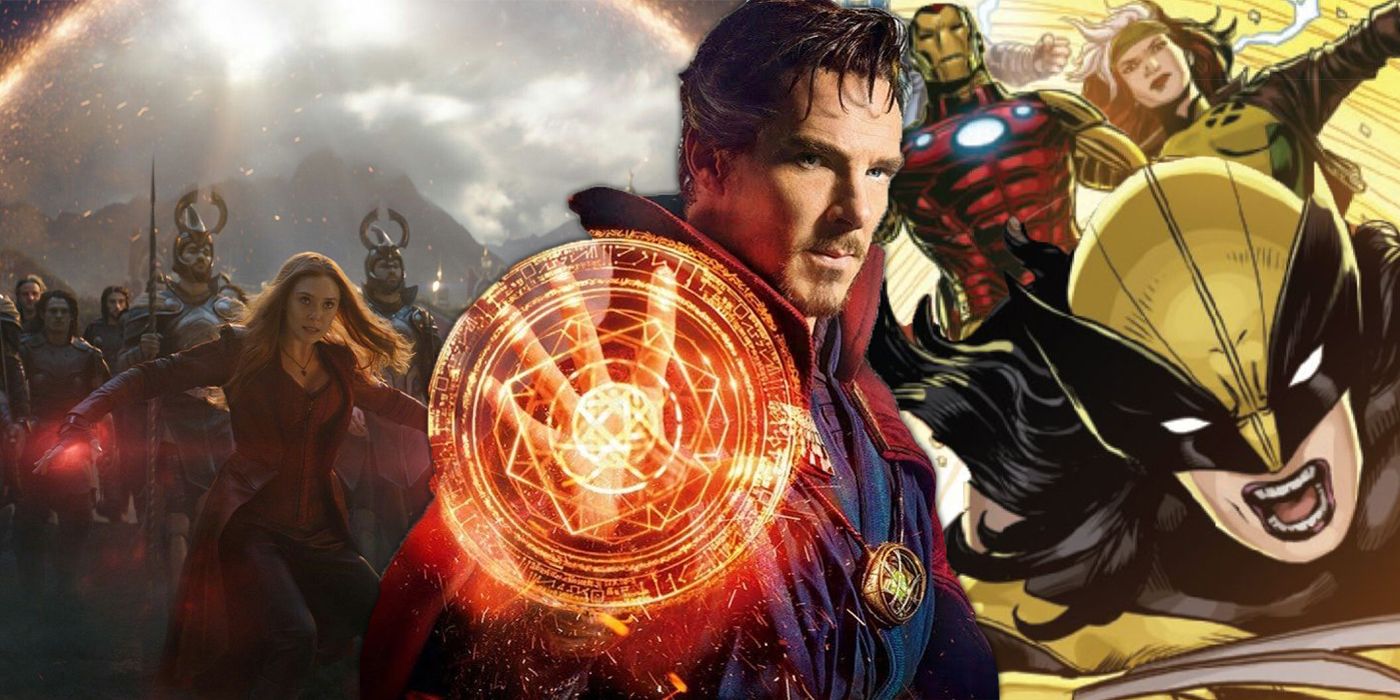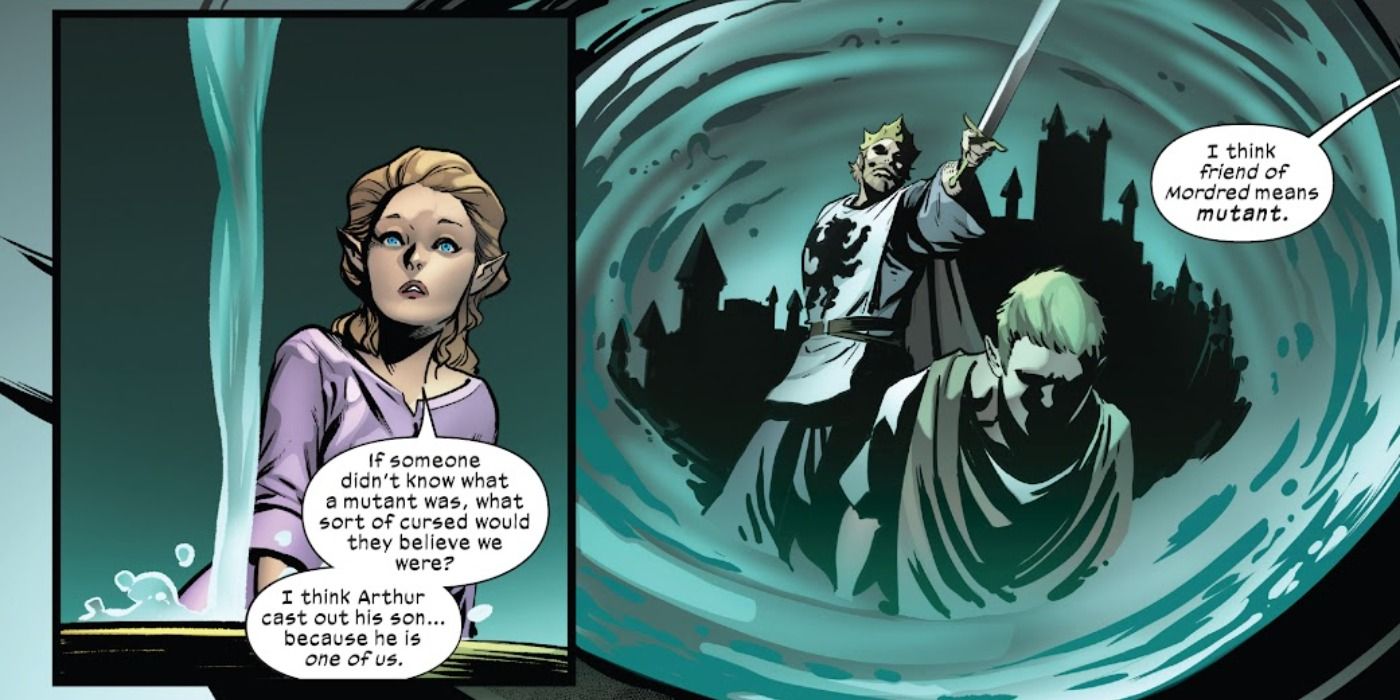
Marvel's X-Men comics are gradually transforming the X-Men into sorcerers. There's always been something of a blurred line between mutants and magic; some of the staple mutant powers are clearly rooted in myths and legends, with Angel's feathered wings making him look just like his namesake, while Wolfsbane possesses a power that's analogous to a werewolf, morphing into a lupine form.
Several mutants are powerful mystics in their own right. Take the example of Magik, Sorcerer Supreme of the Hell Dimension known as Limbo and currently a teacher at Strange Academy. Not only did she train under Doctor Strange for a while, during the Avengers Vs. X-Men event she tricked him into pursuing her to Limbo - and there proved a powerful enough sorcerer to defeat him in battle. The Avengers should breathe a sigh of relief that she's a hero, not a villain.
Modern X-Men comics have gone one step further, though, revealing mutants and magic may well be one and the same thing. Tini Howard's Excalibur has conflated the history of anti-magic violence with the persecution of mutants, even revealing one early mutant was Mordred, son of King Arthur of Camelot. Indeed, to this day King Arthur - who now resides in the mystical realm known as Otherworld - considers mutants to be "friends of Mordred." As the X-Men's ally Meggan put it, "If someone didn't know what a mutant was, what sort of cursed would they believe we were? I think Arthur cast out his son... because he is one of us. I think friend of Mordred means mutant."

The connections go deeper than that, though. Excalibur reinvented one of the greatest X-Men villains, Apocalypse, as a priest - one who was intimately acquainted with a form of the mystic arts only available to mutants. He spent a great deal of time teaching the earth-manipulator Rictor. On one mission to the U.K., Rictor encountered an ancient cult of druids who considered him a brother because they shared his powers. Meanwhile, in the present day, the mutant inhabitants of the living island of Krakoa have been synergizing their powers in ways that seem very much like magic; they stole a rare substance called mysterium from the heart of creation itself, something that - according to a sorcerer as eminent as Doctor Doom - is only possible with magic. Little wonder that on the one occasion Doctor Strange set foot on Krakoan soil, he sensed magic all around him. In the aftermath of Doctor Strange's death, incidentally, the X-Men are even tackling villains like Nightmare who are traditionally associated with the dark arts.
But the similarities don't end there. 2019's House of X miniseries revealed long-standing X-Men ally Moira MacTaggert was a secret mutant born with the power of reincarnation; when she dies, she is returned to the point of her birth with all the knowledge of her past lives, and history reboots around her. This stands in marked contrast to "normal" methods of time travel in the comics, which create branching universes, but it's recently been revealed it matches up to the time travel magic of Doctor Strange and other sorcerers, who can bend all of history to their will. The differences between mutants and mystics appear to be shrinking.
This is unlikely to be an accident. Marvel's X-Men comics are currently flourishing after a high-profile relaunch in 2019 that led to the establishment of the nation of Krakoa. The rewriting of mutant history, and the subtle but increasingly notable association of mutants and sorcerers, seems to be a key theme in that relaunch. It will be fascinating to see where things go next for the X-Men.
from ScreenRant - Feed https://ift.tt/3BCDkvG



0 Comments